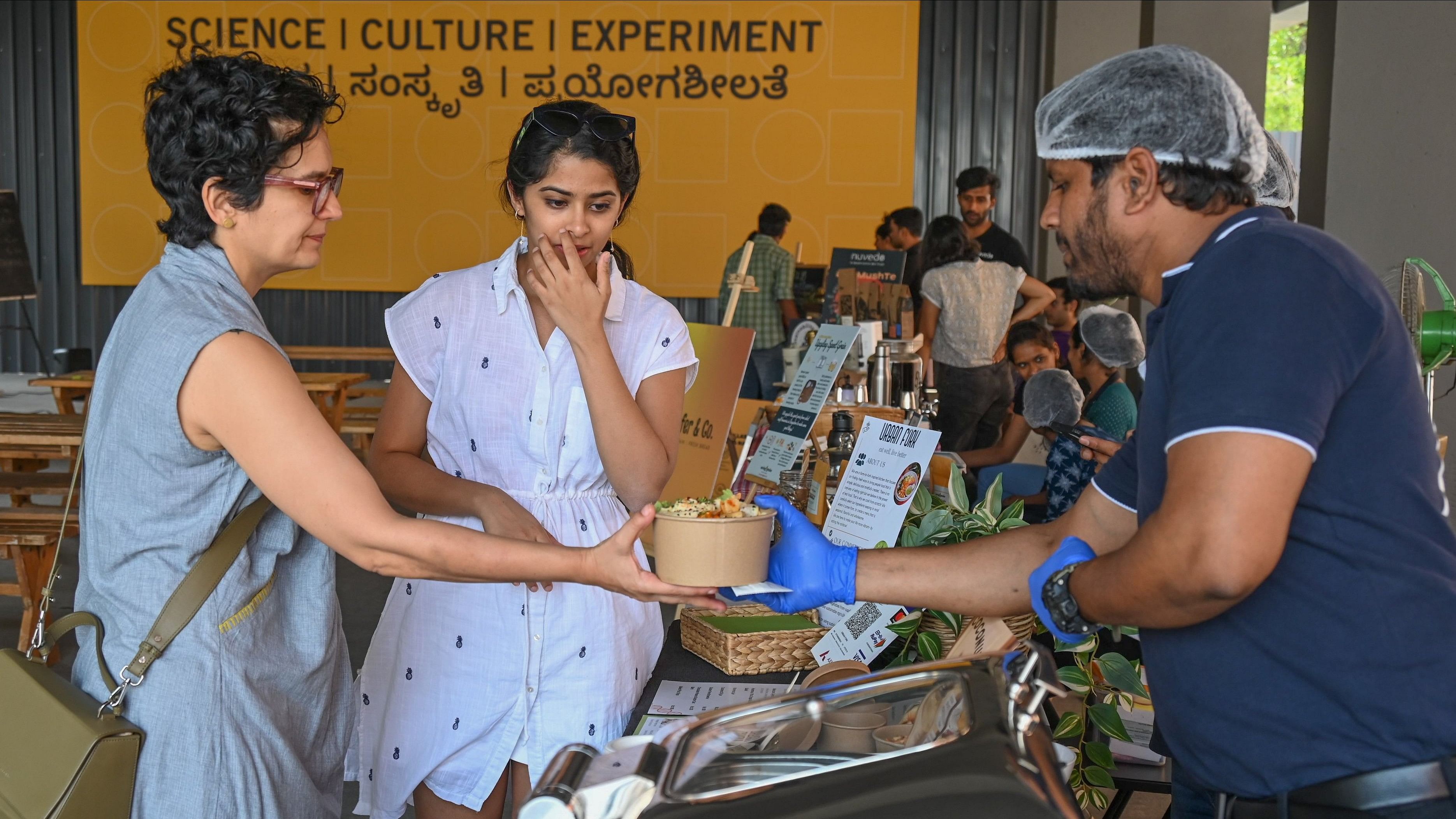
Visitors at the Science Gallery Bengaluru's Namma Oota (Our Food), a two-day food festival held over the weekend.
Credit: DH Photo/SK Dinesh
Bengaluru: Forget Michelin stars, the new status symbol is summoning samosas with a swipe.
Food giants like Swiggy and Zomato might be our culinary knights, but they are leaving a dragon-sized waste footprint on the planet. Turns out, indulging every fleeting food fancy comes at a king-size cost — mountains of trash that dwarf what most industries produce.
But what if we could be warriors against waste, instead of its creators?
Science Gallery Bengaluru's Namma Oota (Our Food), a two-day food festival held on Saturday and Sunday, tackled this very issue. It's a chance to ditch the disposable mentality and celebrate a more sustainable future for our food, and our planet.
Providing delicious food solutions, Bengaluru's brightest sustainable food startups had put up stalls at the event, offering a mind-blowing array of dishes crafted from unexpected sources: seeds, grains, and pulses usually tossed away after brewing.
Beyond the fight against waste, Namma Oota offers a deeper conversation.
Gayatri Manu, Science Gallery Bengaluru's Senior Programme Associate, who coordinated Namma Oota, explained that food has always been tied to culture and emotion. But lately, we are starting to see the bigger picture — the social and political impact of what we eat.
"Namma Oota," she said, "is about using food as a lens to create energy-efficient kitchens."
Chef and nutrition coach Nayantara Bagla pointed to today's young adults who prefer the "click-to-eat" culture. “Many lack cooking skills, and even those who can cook, might struggle with storing or reusing leftovers,” she said, adding that cooking is a valuable skill that anyone can learn and enjoy, regardless of gender.
For Nayantara, "junk food" is contextual, given so many global influences in our cities. “When we buy ingredients, we must ask ourselves if we can use all parts of it in cooking, without wasting any of it,” she said.
In her view, stepping into the kitchen reveals a lot about daily decision making and personal choices.
Amid interactive sessions at the gallery, Sunday saw the space buzzing with two workshops: one revealing the secrets of sprouting mushrooms in the city, and another where participants learnt to craft the probiotic beverage, Kombucha.